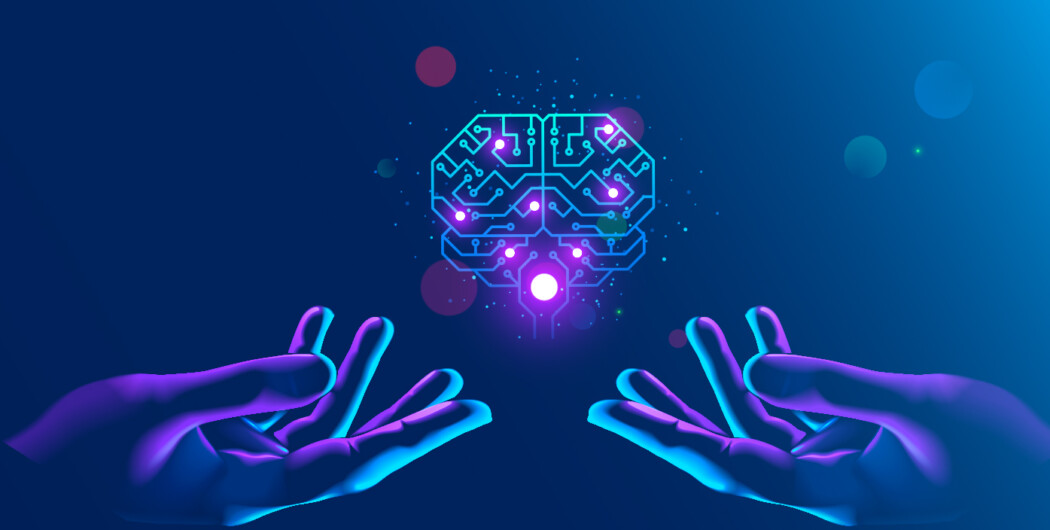

Recent advancements in machine learning algorithms have led to the development of advanced AI systems that can perform a wide range of tasks. For example, in 2020, a group of researchers decided to test a language model, asking it to write a simple script in Python to play rock-paper-scissors against a human player. To everyone’s surprise, the model generated a fully functional and efficient script in just a few seconds.
A couple of years forward, the role of AI in business is getting increasingly important as organizations look for ways to streamline processes, improve efficiency, and gain a competitive advantage. Let’s take a look at AI in business examples that you can come across today.
Customer service

The use of AI in business has become widespread, and customer service is one of many areas where AI is making a significant impact. AI-powered chatbots and virtual assistants can handle customer inquiries and provide quick and accurate responses 24/7. This can greatly reduce the workload on human customer service agents and allow them to focus on more complex issues.
What’s more, AI-based sentiment analysis can be used to analyze customer feedback and identify patterns and trends in customer experiences.
Marketing and sales
The benefits of AI in business for marketing and sales departments are numerous. AI tools can be used to personalize marketing messages and recommendations based on customer behavior and preferences. This can lead to higher engagement rates and more successful marketing campaigns. There is potential for lead scoring and helping businesses identify potential customers and improve conversion rates.
AI can also be used to analyze large amounts of data to identify patterns and make predictions about customer behavior. This can help companies make data-driven decisions about their marketing and sales strategies, leading to better outcomes.
Supply chain management
The role of AI in business is rapidly evolving, leading to improved efficiency and reduced costs in supply chain operations. The technology helps optimize and automate various supply chain processes, such as demand forecasting, inventory management, and transportation planning.
Advanced planning and optimization in transportation is one of the possible use cases. AI algorithms can be used to analyze data from GPS trackers, traffic patterns, and weather conditions to determine the most efficient delivery routes.

Fraud detection

Fraud detection is another argument confirming the importance of AI in business. AI systems can be trained on large amounts of data (like historical transaction data, banking activity, social media behavior, etc.) to identify patterns and anomalies that may indicate fraudulent activity. Thus, the technology becomes better at improving the accuracy and efficiency of fraud detection efforts with time.
For example, if a system identifies a transaction that deviates significantly from a customer’s normal spending patterns, it can flag the transaction as potentially fraudulent and trigger an investigation. The business can choose to keep the investigation internal or immediately inform the authorities.
Maintenance
AI can help monitor equipment and predict when maintenance is needed, reducing the need for repairs and minimizing the risk of equipment failure.
For example, it can analyze data from sensors on machinery to predict when maintenance is needed and schedule it proactively. This can help companies reduce downtime and improve the efficiency of their operations.
Overall, AI in business is rapidly transforming many aspects of business operations, and these five represent only a fraction of them.
Future of AI in business
As AI technology continues to advance, it will bring about new and innovative solutions to the challenges faced by organizations. AI will become more integrated into business processes and decision-making, enabling companies to automate tasks and make better use of data to drive growth and improve customer experiences.
However, there will be disadvantages of AI in business, such as the potential loss of jobs as tasks are automated and the potential for bias in decision-making. Therefore, anyone looking into how to implement AI in business should approach it with careful planning and execution.
“Companies must first define an existing business problem before exploring how AI can solve it. Failure to go through this exercise will leave organizations incorporating the latest “shiny object” AI solution.”
It’s also important to ensure that the data used to train AI systems is diverse, representative, and free from bias. And finally, companies should invest in developing the necessary infrastructure and skills to effectively implement and manage AI systems.
Sources:
The future is now: Unlocking the promise of AI in industrials, McKinsey & Company
3 things ai can already do for your company, Harvard Business Review
7 applications of artificial intelligence in business, Levity AI








